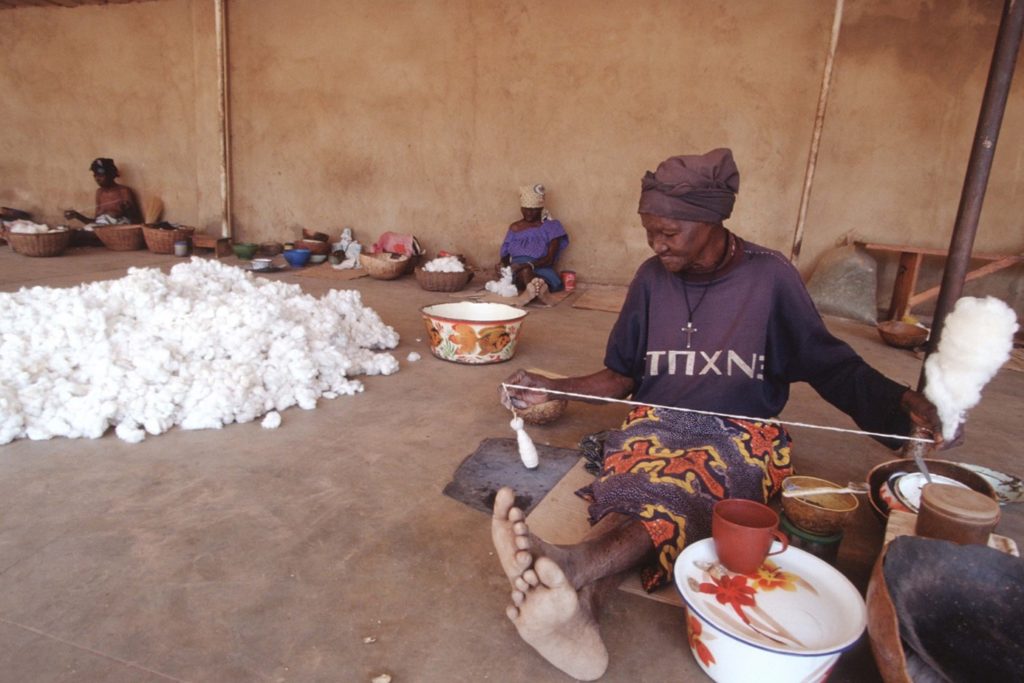
Women workers in the informal economy
Analysis of this information indicates that health coverage is the most widespread mechanism and that the greatest proportion of workers covered by at least one social protection mechanism live in the larger cities of Ouagadougou and Bobo-Dioulasso.
The study’s recommendations advocate for strengthening the social protection information system to better integrate data for evidence-based decision-making; adopting and implementing measures for the systematic inclusion of workers in the informal economy through the enforcement of the legislation concerning universal health insurance; strengthening the knowledge, attitudes and practices of workers in the informal economy on the issues and rules for joining social protection schemes; and strengthening the extension and operation of professional organizations in the informal economy.
National authorities validated the study’s findings during a workshop (16–17 May). The study responds to a recommendation made during a 2021 colloquium on social protection for the self-employed and other actors in the informal economy, and it follows on from a resolution of the 32nd session of the Ministers Council of the Inter-African Conference on Social Welfare in Geneva (June 2022), which called on each Member State to carry out a national examination on the extension of social protection to workers in the informal economy.
Learn more about SP&PFM in Burkina Faso here.
